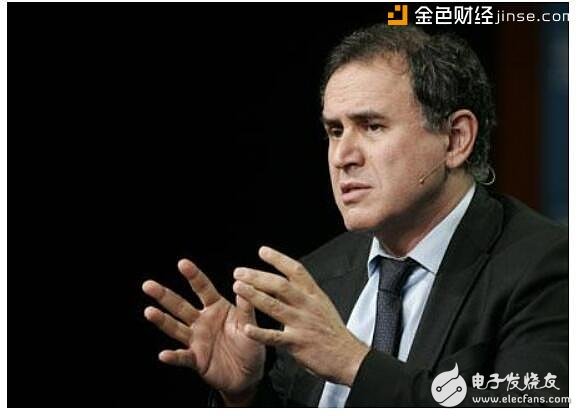Professor Lunini, a professor at the Stern School of Business at New York University and CEO of Roubini Macro Associates, served as a senior economist in international affairs for the White House Council of Economic Advisers during the Clinton administration. He has also worked with prestigious institutions such as the International Monetary Fund (IMF), the Federal Reserve, and the World Bank. Here are some of his insights on Bitcoin and blockchain technology:

Even after a significant market correction earlier this year, Bitcoin and other cryptocurrencies remain at remarkably high levels. Despite this, many tech enthusiasts still believe that blockchain will revolutionize business models. However, Professor Lunini argues that blockchain is one of the most overhyped technologies in recent history.
Predicting the failure of Bitcoin often leads to strong reactions from blockchain advocates. While it's true that many initial public offerings (IPOs) have failed, the cryptocurrency space is no different. Over 1,500 crypto projects have launched, and most will likely fail too. Yet, even if many cryptocurrencies don’t survive, blockchain itself could still have a transformative impact on finance and society.
In fact, blockchain is arguably one of the most inflated technologies ever. For beginners, it’s less efficient than traditional databases. Blockchain requires significantly more storage and computational power than centralized systems. Moreover, blockchains using “proof of stake†or “zero knowledge†protocols encrypt all transactions, which can slow things down. Even “proof of work†blockchains, like Bitcoin, consume massive amounts of energy. In fact, Iceland’s Bitcoin mining operations are expected to use more electricity this year than all households combined.
Blockchain emphasizes decentralization, but banks already process millions of transactions daily using highly efficient systems. There’s little reason to switch to less efficient alternatives unless there’s a clear benefit. Financial institutions, especially those involved in algorithmic trading, need fast and reliable transaction processing. Global distributed blockchains like Ethereum simply can't match the speed required for such operations.
Another common misconception is that blockchain is a new general-purpose protocol, similar to TCP/IP or HTML for the internet. But this analogy doesn’t hold. Blockchain relies on existing protocols like TCP/IP, so it can't truly replace them. Additionally, blockchains are "stateful," meaning they store data from every transaction. This makes scalability a major challenge. For example, Bitcoin Core can only handle 5–7 transactions per second, while Visa processes 25,000 per second.
Just as we wouldn’t store all global transactions in a single centralized database, we shouldn’t do the same in a distributed one. The issue of blockchain scalability remains unsolved and may persist for years. While blockchain won’t replace fundamental protocols like TCP/IP, specific components—such as smart contracts on Ethereum—could become standards for certain applications, much like how Enterprise Linux and Windows operate on PCs. However, investing in individual cryptocurrencies is not the same as betting on an industry-wide standard. Converting market capital into cryptocurrency without real utility doesn’t make much sense.

A third misunderstanding is the idea that blockchain creates an "unreliable" utopia by eliminating financial intermediaries. This is impractical because financial contracts can be altered or broken by participants. Creating a rigid, immutable framework for every agreement isn’t commercially viable, especially when it requires 100% cash collateral, which is extremely costly.
Many blockchain applications in finance—like securitization or supply chain monitoring—still require intermediaries to handle unforeseen situations. Smart contracts, however, can help ensure transparency and clarity between parties. They don’t replace intermediaries entirely, but they add value in terms of trust and efficiency.
It’s time to move past the hype. Bitcoin is slow and energy-intensive, like a fossil dinosaur. Ethereum’s proof-of-stake system could be vulnerable to manipulation by insiders. Ripple’s cross-border payment solution is being challenged by SWIFT, and centralized payment platforms like Alipay, WeChat Pay, Venmo, PayPal, and Square are faster, cheaper, and widely used by billions.
The current "crypto frenzy" is reminiscent of the railway mania of the mid-19th century. Like most bubbles, it will eventually burst. While blockchain itself may not be revolutionary, it has the potential to make a significant impact when integrated with industries like finance and automation.
Outdoor Battery,Outdoor Powder Coating,Battery Rack,Integrated Rack
Guangdong Yuqiu Intelligent Technology Co.,Ltd , https://www.cntcetltd.com